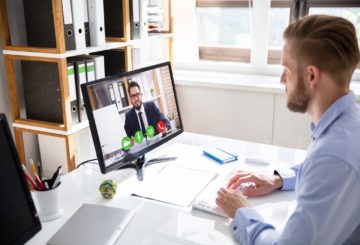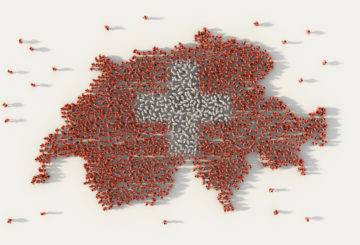
Pre-Interview Preparation
The best way to ensure a good performance for a Dutch job interview is to thoroughly prepare. If you can anticipate the questions that will be asked and formulate insightful questions to ask your interviewer, you will be well on your way to creating a great impression and, hopefully, landing the position. Here are a few preparation tips:
- Research the company as thoroughly as possible, using as many sources as you can find. You can learn a great deal by exploring the employer’s website and social media sites, or by consulting their annual report. Search news sites for recent announcements involving the company. If possible, reach out to people who are familiar with the company and the position.
- It’s also good to know what the format of the interview will be (such as one-on-one or panel) and who will be conducting it (name and job title). Corporate personnel departments often will send an email that includes a schedule and details about the interviewer(s), but if this information is not immediately supplied, it is completely acceptable to contact the company to inquire about these details.
Dress code
- Men generally wear dark suits, plain ties, and white shirts to interviews, and women typically wear suits.
- Often, the dress code depends on the location, type of position and industry. Helpful information may be available from business contacts or from people who work for that specific employer or a comparable company. Visiting the company’s website or LinkedIn can be helpful, as well.
- In general, the Dutch do like to dress up for work but there is a fine balance. If you are for any reason in doubt about the company’s dress code, err on the side of caution and dress up, because it is better to appear overdressed for an interview than underdressed.
Interview Conduct
- It is essential to be on time for an interview; travel time may double depending on traffic congestion or train delays, so leave yourself plenty of time to get to the interview.
- Upon arrival, introduce yourself to the front desk, if there is one. Sometimes a receptionist will be asked for their impression of you. You don’t need to be overly friendly, but make sure the person is acknowledged and greeted with a smile.
- Turn off your cell phone or switch it to silent mode, and leave it in your pocket so you won’t be distracted while in conversation.
- Upon entering the interview room, shake hands with everyone present, and continue to stand until you are invited to take a seat. Make eye contact and remember to smile every so often when speaking with an interviewer.
- The parties may engage in a little small talk, but this is usually minimal. The Dutch are known for being direct and getting to the point. The actual interview begins almost immediately.
- Maintain a professional demeanor and speak in a forthright fashion throughout the interview. Remaining courteous and polite with everyone present is critical, as several people may be part of the evaluating process. Be careful not to criticize former employers, and do not interrupt the interviewer.
- Demonstrate competency and knowledge of the industry, but do so in a non-boastful way.
- Don’t embellish your achievements or your work record, because these things can be subject to review, especially if they are presented as being outstanding.
- Bring along a list of references but offer it only if requested, which usually does not occur until the second interview. You also should bring copies of your CV, your personal agenda, and a pen and pad to take notes.
The Interview
During the interview, be prepared to express your motivation for applying for the position; discuss your strengths and weaknesses, and demonstrate how you can contribute to the company.
Typical Dutch interview questions
- Where do you see yourself five years from now?
- What special skills and attributes can you bring to this role?
- What are your positive qualities?
- What might your friends describe as one of your negative qualities?
- Do you have trouble working for a boss?
- Are you willing to work overtime?
- Why are you an excellent match for this job and this company?
- What makes this position interesting to you?
Post Interview
- The application procedure or hiring process will be explained during the first interview. This explanation should include information about the different steps and procedures moving forward to the next round, including the time frame and how you will be informed. If by the end of the meeting the procedure is not clear, it is acceptable to ask.
- In many cases, employers take from 1 to 4 weeks to inform a job candidate of the result of an interview, with wait time often depending on the number of candidates being interviewed for the position. Only very occasionally would a candidate get an offer on the spot. If this should happen and you’re not ready to commit, it is acceptable to ask for some time to reflect.
- If a week or more has passed and you have not heard anything from the company, it would not be unusual to call the company representative (HR, hiring manager or recruiter) to ask about the job status.
- If you are rejected for a position or for a further interview, it is acceptable to ask for more information from the company’s contact person. A polite, respectful request often will provide you with useful knowledge for your next job application.
- It is not common in the Netherlands to send thank you letters after an interview. In fact, doing so may be taken as a fawning attempt to curry favor. It is better to simply thank your interviewer at the end of your meeting, and let them know that you are motivated and remain interested in the job.



